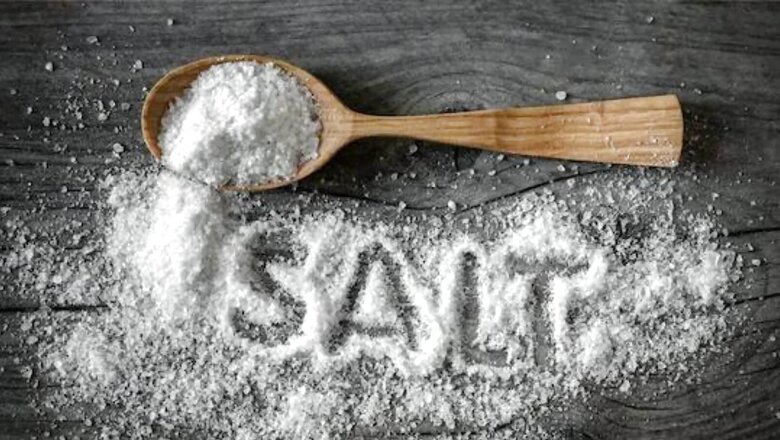
views
How much salt is too much salt? Most of us often find telling ourselves that we need to cut down on the quantity of salt but we often fail to do so. Even though we are often told to consume food items that are either less salty or have no salt content at all, we tend to brush away these thoughts. But, you should not avoid these suggestions anymore and here’s why.
Did you know that salt has been used for the preservation of food for centuries now? While it does help in amplifying the taste of your meals, too much intake of salt has a negative impact on your health.
Salt has been extremely important in food preservation, which helps the food items to have a longer shelf life. However, what we don’t know is that salt extracts moisture from the food items and this extracting of moisture limits the bacterial growth which then spoils the food and becomes a cause of gastrointestinal illness.
Even though most of us know what salt is and what it does, rarely do we understand the formation of salt and why is it worrisome? Salt is a combination of two chemical compounds, namely, sodium and chloride. Out of the two compounds, Sodium has been the cause of concern in the human body. Too much intake of salt has been associated with increased levels of blood pressure, also known as hypertension. High blood pressure or hypertension is then linked to becoming a major risk factor for stroke and heart-related ailments. Over the last few years, heart-related ailments and the cases of stroke have gone up, which then eventually leads to death or severe illness. Apart from this, high blood pressure has also been associated with kidney disease.
It is, therefore, crucial to keep the sodium intake in check in order to avoid the effects sodium has on cells in an individual’s body. There are certain age groups that are at a higher risk and are often termed salt sensitive. It is important for this particular group along with the elderly to keep their sodium intake in control.
Here’s how you can keep your salt intake within limits:
1. Avoid processed and junk foods that use salt for the preservation of food items.
2. Increasing fruits and vegetable intake in the diet can also help in lowering sodium intake.
3. Exercising regularly is the best way to keep a check on your overall health and reduce your sodium intake.
4. Quitting smoking and restricting alcohol intake also help in keeping blood pressure within the limits
Read all the Latest Lifestyle News and Breaking News here

















Comments
0 comment